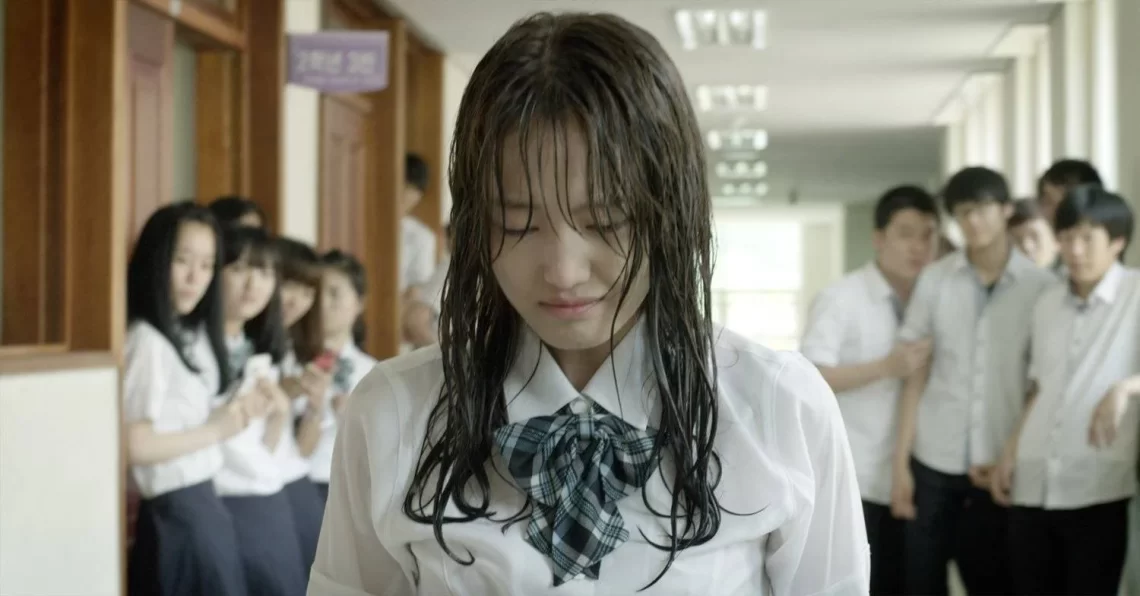
The Dark Reality of School Bullying in South Korea
Bullying at school is a pervasive issue that affects many children and teenagers worldwide, including South Korea. The impact of bullying can be long-lasting, leading to mental health issues, academic struggles, and even suicide. The issue of bullying has been depicted in various forms of media, including Korean dramas. Recently, several popular Korean dramas, including “The Glory,” “Revenge of Others,” and “Weak Hero Class 1,” have portrayed the theme of bullying at school. While these dramas may be fictional, the issue of bullying is a very real and pressing problem in South Korean society.
The Prevalence of Bullying in South Korean Schools:
 Bullying is a widespread problem in South Korean schools. According to a survey conducted by the Korean Educational Development Institute in 2020, 44.4% of elementary school students, 35.6% of middle school students, and 25.4% of high school students reported experiencing some form of bullying. The survey also found that verbal bullying was the most common type of bullying, followed by physical bullying and social exclusion.
Bullying is a widespread problem in South Korean schools. According to a survey conducted by the Korean Educational Development Institute in 2020, 44.4% of elementary school students, 35.6% of middle school students, and 25.4% of high school students reported experiencing some form of bullying. The survey also found that verbal bullying was the most common type of bullying, followed by physical bullying and social exclusion.
Factors Contributing to Bullying in South Korean Schools:
There are several factors contributing to the prevalence of bullying in South Korean schools. One of the most significant factors is the highly competitive nature of South Korean society. In South Korea, academic achievement is highly valued, and students are under immense pressure to perform well academically. This pressure can lead to bullying, as students may resort to belittling and ostracizing their peers to gain a competitive edge.
Another contributing factor is the hierarchical nature of South Korean society. In South Korea, age and status play a significant role in social interactions. Students may bully their peers who are perceived as weaker or lower in status to reinforce their own position in the social hierarchy.
Bullying Prevention and Intervention in South Korean Schools:
 To address the issue of bullying, the South Korean government has implemented various measures aimed at prevention and intervention. The Ministry of Education has developed a national bullying prevention policy that includes the training of teachers and the establishment of counseling centers for students. Additionally, schools are required to conduct annual surveys to assess the prevalence of bullying and develop measures to prevent it.
To address the issue of bullying, the South Korean government has implemented various measures aimed at prevention and intervention. The Ministry of Education has developed a national bullying prevention policy that includes the training of teachers and the establishment of counseling centers for students. Additionally, schools are required to conduct annual surveys to assess the prevalence of bullying and develop measures to prevent it.
In recent years, there has been a growing awareness of the need for mental health support for victims of bullying. Several organizations have been established to provide counseling and support for victims of bullying, including the Korean Association for Children with Behavioral Problems and the Korea Youth Counseling Institute.
Special Cases of School Bullying in South Korea
While many cases of school bullying in South Korea involve psychological harm and emotional trauma, there have also been cases where the bullying has resulted in physical harm and even death. One of the most well-known cases is the death of 16-year-old high school student Choi Jin-sil in 2008, who committed suicide due to severe bullying. Her death sparked national outrage and led to greater efforts to prevent school bullying.
In 2011, another high school student, Lee Hana, took her own life after suffering from bullying by her classmates. Her case prompted the South Korean government to pass a new law aimed at preventing school bullying and providing support for victims.
These tragic cases highlight the serious consequences of school bullying and the urgent need for action to address the issue. In addition to providing support for victims, it is crucial to raise awareness about the harmful effects of bullying and to implement effective prevention measures.
In recent years, South Korea has taken steps to address the problem of school bullying, including implementing anti-bullying programs in schools and increasing penalties for perpetrators. However, there is still more work to be done to ensure that every student can attend school in a safe and supportive environment.
The portrayal of school bullying in popular media, such as the kdramas “The Glory,” “Revenge of Others,” and “Weak Hero Class 1,” serves as a reminder of the devastating impact that bullying can have on young people and the importance of taking action to prevent it.
You May Also Like

6 Tips To Help Boost Your Child’s Immune System
2022-06-17
Which Sleeping Positions Are the Safest for Babies
2022-02-11

